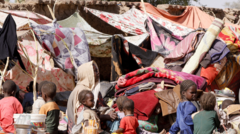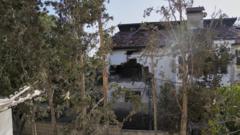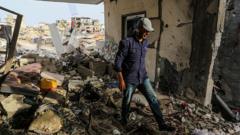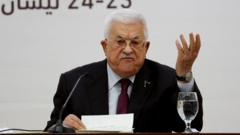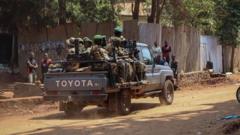**Israeli forces have intensified actions in southern Lebanon and Gaza, creating an atmosphere of precariousness amid ongoing cease-fire agreements.**
**Cease-Fire Tensions Mount in Israel-Lebanon Conflict Amid Violence and Uncertainty**

**Cease-Fire Tensions Mount in Israel-Lebanon Conflict Amid Violence and Uncertainty**
**As cease-fires falter, both Lebanon and Gaza experience rising tensions and casualties.**
Israeli military operations in southern Lebanon and Gaza have escalated, resulting in significant casualties and ongoing hostilities despite existing cease-fire agreements. On Sunday, Israeli forces reportedly killed at least 22 individuals in southern Lebanon, as described by local authorities, while also restricting Palestinian movements in Gaza.
As thousands of displaced Lebanese sought to return to their homes, the Israeli military fired in response to perceived threats, claiming to have encountered a vehicle displaying Hezbollah flags. A spokesperson stated the military acted to "remove the threat." In addition, Israeli forces fired warning shots at groups they labeled as rioters, leading to over 120 reported injuries from these clashes, according to Lebanon's Health Ministry.
The tentative cease-fires established following a November agreement mandate both Israel and Hezbollah to vacate southern Lebanon in favor of deploying Lebanese military and U.N. forces to the area. However, the ongoing military presence of Israeli troops has raised concerns regarding Hezbollah's activities.
In Gaza, the situation remains similarly fraught. Israel has impeded Palestinians from returning to northern Gaza, citing alleged cease-fire violations by Hamas. A contentious aspect of the cease-fire revolves around the fate of Arbel Yehud, the last known female civilian hostage believed to be alive. Though her release was anticipated, speculation suggests she may be detained by Palestinian Islamic Jihad, which has expressed intentions to release her before the coming weekend.
While both sides seem to desire the maintenance of these fragile cease-fires, the recent escalations raise critical questions about their future viability amid escalating violence and geopolitical complexities in the region.



